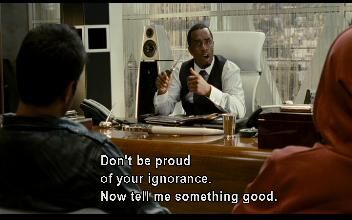A talent somewhat above mediocrity, shrewd and not too sensitive, is more likely to rise in the world than genius.
Charles Horton Cooley
I pride myself in being exceptionally un-exceptional in just about everything I do. I’m a passable dancer, I’m not particularly clever, I wouldn’t be your first-pick on any sport you know, I have a third-grader understanding of physics…the list goes on.
There’s nothing I can point to and say “hey, I’m really good at THAT!” I’m actually grateful for my lack of skills.
Here’s why….
Talented people can get into a rut
I’ve met a lot of people who were VERY exceptional at a few things, and they made those few things the “reason for living.” So what happens to the dancer who can no longer get on heels? Or the doctor who becomes bored at her work? Just because you’re good at your profession, doesn’t mean you’ll love it (although there’s a high correlation between the two). But if you’re not very good at any ONE thing, you can average your way through a bunch of weird and interesting jobs. Plus, there’s a segment of jobs that it’s hard to tell the difference between “mediocre” and “great”, which make for good jobs for people with mediocre skills e.g – Librarians, dolphin-trainers, and most administrative positions in any industry, ever.
Life make most skills obsolete eventually
If you’re an professional athlete, you have a set time-limit on your skillset. After age 40 you’re probably going to need a new career (sports anchor anyone?) That sucks. How are your awesome guitar skills going to help you when you’re raising a family? Better to pick up new skills as quickly as old ones become irrelevant. Mediocre-ly talented people such as myself are used to this: we just accept that we’ll need to learn more stuff, and aren’t sentimental on not being able to do the old stuff (we weren’t very good in the first place, ya know)?
Most stored knowledge is wonderful but unnecessary.
I have a strong basis that it’s more important to “learn to learn” and to be able to aggregate most information rather than memorize information in an attempt to become a biomass library. You’re just not able to store the info, and recall it better, than a computer. No worries. In life you need to know different things as you get older. While you can read and debate Nicomachean Ethics for several years with your peers, and yes it’ll definitely make you a better person, it probably doesn’t solve 90% of the issues that crop up in the course of Life. Being mediocre-ly skilled means being willing to be practical on the learning, get what you “need to know” and move forward.
Notice this: you can be an awesome person, but still have mediocre skills. Mediocre skills does not make you mediocre. Also, just because you’re not skillful doesn’t mean you need to be disdainful of those superbeings. Finally, just because you don’t know a lot, doesn’t mean you shouldn’t be constantly learning. Read/discuss/see as much as you can! As P-Diddy says….



